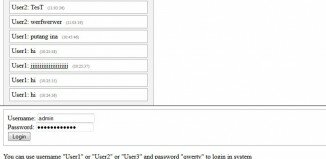ExampleDescribe metadata within an HTML document: |
Browser Support |
1. Definition and Usage
Metadata is data (information) about data.
The <meta> tag provides metadata about the HTML document. Metadata will not be displayed on the page, but will be machine parsable.
Meta elements are typically used to specify page description, keywords, author of the document, last modified, and other metadata.
The <meta> tag always goes inside the <head> element.
The metadata can be used by browsers (how to display content or reload page), search engines (keywords), or other web services.
2. Tips and Notes
Note: Metadata is always passed as name/value pairs.
3. Differences Between HTML and XHTML
In HTML the <meta> tag has no end tag.
In XHTML the <meta> tag must be properly closed.
4. Examples
Example 1 - Define keywords for search engines:
Example 2 - Define a description of your web page:
Example 3 - Define the last revision of your page:
Example 4 - Refresh document every 30 seconds:
5. Required Attributes
DTD indicates in which HTML 4.01/XHTML 1.0 DTD the attribute is allowed. S=Strict, T=Transitional, and F=Frameset.
| Attribute | Value | Description | DTD |
|---|---|---|---|
| content | text | Gives the value associated with the http-equiv or name attribute | STF |
6. Optional Attributes
| Attribute | Value | Description | DTD |
|---|---|---|---|
| http-equiv | content-type content-style-type expires set-cookie others |
Provides an HTTP header for the information/value of the content attribute | STF |
| name | author description keywords generator revised others |
Provides a name for the information in the content attribute | STF |
| scheme | format/URI | Specifies a scheme to be used to interpret the value of the content attribute | STF |
7. Standard Attributes
The <meta> tag supports the following standard attributes:
| Attribute | Value | Description | DTD |
|---|---|---|---|
| dir | rtl ltr |
Specifies the text direction for the content in an element | STF |
| lang | language_code | Specifies a language code for the content in an element | STF |
| xml:lang | language_code | Specifies a language code for the content in an element, in XHTML documents | STF |
8. Event Attributes
The <meta> tag does not support any event attributes.











